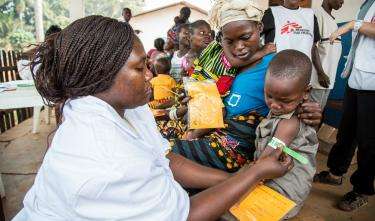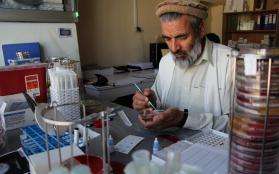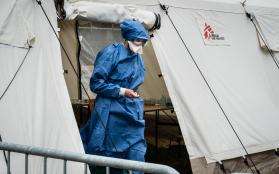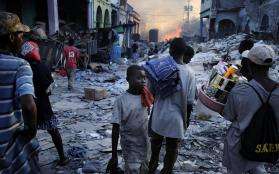What is Critical to Ensure the Quality and Continuity of Doctors Without Borders Programs

What we do
Doctors Without Borders brings medical humanitarian assistance to victims of conflict, natural disasters, epidemics and health care exclusion.
Our focus
Learn about the crises our teams respond to, and how we adapt to provide the highest quality medical care in some of the world's most challenging contexts.
Armed conflict causes injury, displacement, sexual violence, and death, but it also continues to impact people's lives and health long after the front lines have shifted. War devastates health systems, hampers access to medical supplies, and disrupts vaccination and other disease-prevention efforts, heightening the risk of outbreaks.
In conflict zones, MSF does not take sides. We provide medical care based on needs alone and work to reach the people most in need of help. Nearly one-fourth of MSF's projects are dedicated to assisting people living in conflict.
Earthquakes, floods, tsunamis, and major storms can force people to flee their homes and cut off access to safe water, health care services, and transportation, affecting the lives of tens of thousands in a matter of minutes. When minutes matter, MSF's network of aid workers in more than 70 countries around the world are often the first to deploy rapid, lifesaving medical care. We keep pre-packaged supply kits to launch rapid responses as quickly as possible.
Millions of people around the world still die each year from infectious diseases that are preventable or treatable. Those at highest live in poverty or other precarious conditions, with limited access to health care and vaccinations.
During an outbreak of an infectious disease like cholera, measles, yellow fever, or Ebola, MSF teams react swiftly to provide lifesaving vaccines, treatment, and epidemiological services. From setting up temporary facilities to treat patients to running mass vaccination campaigns to improving water and sanitation services to help prevent the spread of disease, MSF teams adapt our emergency responses to the unique needs of communities.
More than 82 million people—or 1 in 95 worldwide—have been forcibly displaced from their homes, fleeing conflict, persecution, natural disaster, or other hardships. On the move and in camps they are often forced to live in precarious conditions, cut off from essential services including health care.
When people are displaced, MSF teams conduct rapid needs assessments and work closely with affected communities to provide services including vaccination; primary and mental health care; nutrition support; provision of shelter, drinking water, and latrines; and more.

Maternal health
An estimated 99 percent of women who die in childbirth or from pregnancy-related complications live in developing countries. Most of these deaths are preventable.

Malnutrition
More than 232 million children around the world last year suffered from malnutrition. It is the underlying contributing factor in nearly half of the deaths of children under five years of age.

Antibiotic resistance
Resistance to antibiotics has become a global health crisis, complicating the treatment of bacterial infections and endangering lives around the world.

COVID-19: Our global response
Facts and figures about the coronavirus emergency

Global migration and refugee crisis
Record numbers of people have been forced from home and struggle to find safety.

Haiti: Ten years after the earthquake
A look at the urgent medical needs then and now.
The latest news & stories
How you can help
Not everyone can treat patients in the field. But everyone can do something.
Some humanitarian crises make the headlines—others don't. Unrestricted support from our donors allows us to mobilize quickly and efficiently to provide lifesaving medical care to the people who need it most, whether those needs are in the spotlight or not. And your donation is 100 percent tax-deductible.

Source: https://www.doctorswithoutborders.org/what-we-do
0 Response to "What is Critical to Ensure the Quality and Continuity of Doctors Without Borders Programs"
Post a Comment